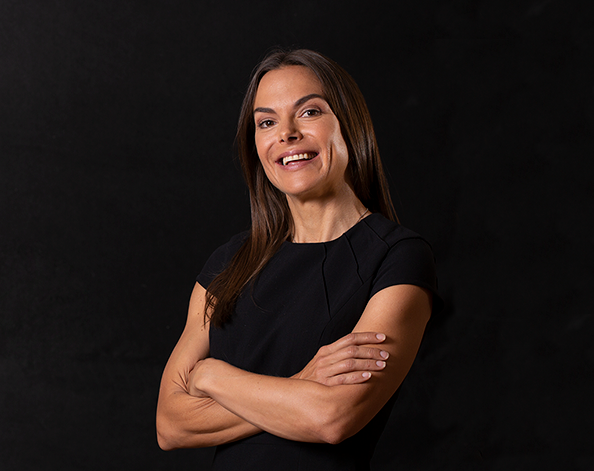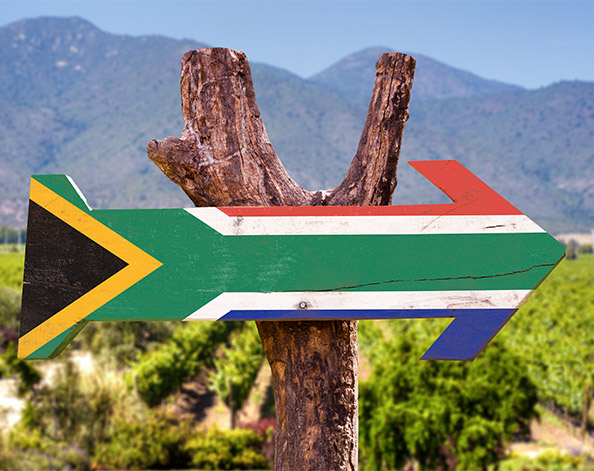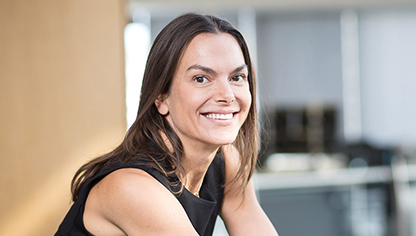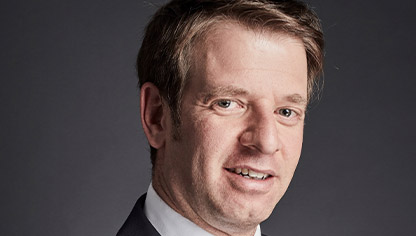Get Focus insights straight to your inbox
As we begin 2022, it’s worth reflecting on what has been a remarkable two years. At times, the world stood still as nations locked themselves down, global travel came to a halt and people were confined to their homes. We were encouraged as many markets and economies started opening fully but just as we thought we would be able to enjoy our summer holidays in a safe environment, we were hit with a fourth Covid-19 wave driven by the Omicron variant.
Who would have thought that, two years after the first Covid case was found in Wuhan, hand sanitiser would be as common on an entrance table as a vase of flowers?
Amid all of this disruption came huge advances in technology, or at least advances in the adaptation and application of new technologies. People moved rapidly to working virtually, while advances in mRNA research helped scientists to roll out Covid-19 vaccines faster than any vaccine in history.
A new and weird reality
Meanwhile, we have seen major strides in the virtual world, such as in non-fungible tokens (NFTs) and other areas of blockchain. These already make us feel as though we are living in a new and weird reality.
An example of this is Decentraland, a decentralised 3D virtual reality platform that consists of 90,601 parcels of ‘land’. Virtual real estate in Decentraland comes in the form of NFTs that can be bought with the cryptocurrency MANA, which is based on the ethereum blockchain. Snoop Dog owns some real estate there.
The metaverse – or virtual universe of which Decentraland is part – has been buzzing with activity, with record deals in ‘land’ and other NFTs in the past few weeks. The metaverse continues to see eye-popping deals for virtual assets, from real estate to yachts.
Recently, there was the sale of a mega (virtual) yacht called Metaflower in the Sandbox metaverse, for a staggering US$650,000. The four-storeyed yacht comes with two helipads (with two virtual helicopters sold separately), several lounges, a dance floor, and a jacuzzi.
A mega (virtual) yacht called Metaflower in the Sandbox metaverse, was sold recently for a staggering US$650,000.
Closer to home, one of our colleagues recently had a meeting with a client, who informed him that they had just finished a meeting with their client. Their meeting was held digitally – not unusual in this day and age – but what was unusual was that their client appeared as an avatar. The client also stated that the avatar always changes, so who knows to what / whom anyone will be presenting to next time or if their client will ever be recognised in the real world. This gives a whole new meaning to the concept of know your client (KYC).
Why wealth management still matters
By comparison, the traditional asset classes such as equities, bonds, listed property and structured investments seem mundane, especially to the younger generations, some of whom will be inheriting wealth of about US$15 trillion over the coming years.
With all these new investment options available, the importance of a wealth manager or adviser who can objectively ascertain and perform extensive due diligence on the array of investment opportunities has never been more critical.
Wealth managers have had a key role to play over the Covid-19 pandemic, often as much as a psychologist as a pure investment manager. Those of our clients who managed to stay the course over the fastest fall and recovery ever in market history were handsomely rewarded for their efforts. We now see many markets at or near record highs, while the few investors who panicked at the bottom of the market in March last year may sadly have cemented losses of close to 40%. It’s in times like these that the value of a well-constructed financial plan, consistently executed by client and wealth manager, becomes even more important.
This sort of performance however brings with it a lot of discussion among wealth managers about what we should be doing next. In particular, over the last year our team across South Africa has been debating the question of global versus local asset allocation. The prospects for South Africa are cautiously optimistic.
We’ve been a primary beneficiary of higher commodity prices, which has helped create a sizeable trade surplus and boost government revenue. The debt-to- GDP trajectory is now roughly in line with the pre-covid trend and it seems that South African incomes have more than recovered to pre-covid levels.

With all these new investment options available, the importance of a wealth manager or adviser who can objectively ascertain and perform extensive due diligence on the array of investment opportunities has never been more critical.
A more personal debate
The debate for private clients is more personal, however. Private clients in South Africa typically have their homes, pensions and businesses in this country. The decision to invest offshore becomes far more of an insurance and diversification conversation than a pure short-term tactical asset allocation decision.
South Africa accounts for about 0.4% of global GDP and the implication of this is that by venturing offshore, you get the chance to invest in many growth industries that are simply not yet available in South Africa – think biotech, renewable energy, DNA technology, robotics, and many others.
However, over the past year, Investec’s international asset allocation team has been reviewing the typical assumptions behind strategic asset allocation.
The key result of this review was that asset allocation was dependent on the time horizon but was unchanged by the currency of the goal. A US dollar investor with a goal of US inflation will have the same allocation to equities as a rand investor with a goal of beating South African inflation. An investor will have an optimal allocation to equities, based on their risk profile, irrespective of the currency of their goal. The currency will however determine whether those equities should be based in the US or South Africa. It’s a significant result and means that asset allocation is ultimately a function of your time horizon. Then you look at the currency of your goals and liabilities to establish how much you should invest abroad. We think this is an innovative step that allows for asset allocation to better suit the needs of our clients.
A resilient nation
The riots that plagued our country in the middle of the year also certainly shook us severely and the mood at the time was probably the lowest we have seen in a while.
We are, however, a resilient nation, and despite the damage caused to our economy, when things settled after a few days, there were some positives to be drawn: the attempt at insurrection failed and citizens of the country stood up against an evil political force. The economy and general mood have managed to bounce back. Issues such as load shedding, corruption, lack of urgency in policy reform to target economic growth, cadre employment at state institutions, and continual resistance to the privatisation of our SOEs, continue to harm our economy and dampen economic growth. They have also contributed to our unemployment levels being among the highest in the world. Despite the challenges facing our country and economy, our market still presents many compelling opportunities, considering the cheap valuations that many of the counters are trading at, compared to global peers.

Despite the challenges facing our country and economy, our market still presents many compelling opportunities, considering the cheap valuations that many of the counters are trading at, compared to global peers.
On a further positive note, the recent local elections could also prove to be a watershed moment for our country. The poor voter turnout, the fact that the ANC lost many of the major metros, and received less than 50% of the overall votes, were clear signs of a disillusioned voter base. With the next national elections less than three years away, the ruling party has a lot of work to do to regain the confidence of the population and show some fresh thinking, while the opposition parties can grow their support by making meaningful improvements in the metros that they now control. Our clients have enjoyed excellent returns from our global developed market portfolios over the last few years, while many international markets currently look fairly fully priced. With this in mind, we still believe future returns in traditional risk assets in the coming years will be positive, however they are likely to be somewhat lower than what has been achieved over the last number of years. Tempering our clients’ return expectations will be critical going forward.
There’s a place for alternatives
In this environment, it becomes even more important to increase the allocation to alternatives or non-traditional asset classes, which includes assets such as structured products, physical property, private debt and private equity, hedge funds, and venture capital. These assets tend to be less liquid than traditional listed investments; however, they offer excellent diversification within the portfolios of high-net-worth individuals and families.
Interestingly, over the past two decades, private capital has moved from the outskirts to the centre of financial intermediation. The sharp increase in the availability of private capital has led to a corresponding collapse in initial public offerings (IPOs), and with fewer IPOs to offset the natural attrition in listings due to mergers, bankruptcies and companies going private, the number of public companies dropped precipitously both in the US and globally. By the end of 2018, there were 8,238 companies backed by private equity in the US relative to just 3,439 listed businesses, a dramatic turnaround from 20 years earlier, when there were four times as many listed companies as those companies backed by private equity.
Investec Wealth & Investment has been building a programme of alternative offerings that allow our clients to invest in smaller, more accessible investment sizes than those available in the retail market. The result is that our clients can now more easily build a diversified portfolio of these types of investments, within their portfolios.
One of the big trends in the financial world is cryptocurrencies. Although we are watching the crypto space with huge interest, the industry, from a regulatory perspective still carries a number of risks.
As we start to move out of the pandemic, so the importance of effective tax and fiduciary planning in any wealth plan becomes. With the number of both Covid-19 deaths and divorces, there has been an ever-greater need for advice and planning in this regard. Clients also need effective advice on storing digital assets and how to account for these with respect to death and estate planning.
Living in society, not off it
While the pandemic has captured the headlines, the issue of climate change may well have a greater impact on our lives and those of our children over the long term. The Conference of the Parties to the UN Framework Convention on Climate Change (COP 26), which met in Glasgow towards the end of 2021, drew much excitement and high expectations. Unfortunately, it failed to impress, and world leaders failed to inject the kind of action needed to galvanise real climate mobilisation, with the Glasgow Climate Pact containing many compromises.
UN Secretary-General Antonio Guterres summed it up in a statement at the close by saying, “Important steps were made, but unfortunately the collective political will was not sufficient to overcome some deep contradictions.”
As an industry, we have a responsibility and major opportunity to make a significant impact in global sustainability, by making the correct choice in the companies and funds we choose to invest in for our clients.
Systemic environmental, social and governance (ESG) issues, such as climate change, poverty, and wealth inequality require long-term timelines.
Previously, it was up to governments to enforce rules and regulations for making people and companies act in ways that were fair, equitable and sustainable. It is now the duty of the investment industry to ensure that they support companies that are compliant with ESG principles.
Businesses in today’s world need to be focused on all their stakeholders – which includes customers and shareholders – but also includes employees, suppliers and the communities in which they operate.
The economist Milton Friedman stated in an essay in the 1970s that the sole responsibility of companies was to increase shareholder value and create profit, and that companies have no responsibility to the public or society. We strongly believe that while the core focus of any business is to enhance profitability, businesses in today’s world need to be focused on all their stakeholders – which includes customers and shareholders – but also includes employees, suppliers and the communities in which they operate.
The Covid-19 pandemic has laid bare the interconnectedness between businesses and the broader world in which they operate. This is particularly clear here in South Africa, one of the world’s most unequal countries.
Since sustainability is core to our fundamental investment approach, we have integrated ESG and sustainability considerations in all our investment decision-making and investment processes.
In particular, at Investec we have subscribed to the 10th UN Sustainable Development Goal (SDG 10) – to reduce inequality by seeking real improvement within society, enabling everyone to have access to opportunities that will support their personal growth, and ensure that everyone, everywhere has a chance to live a healthy and happy life. SDG 10 calls on us to recognise the differences between us and to be inclusive of those who are different from us. Just as climate action is critical for the sustainability of the natural world, so too is reducing inequalities critical to the sustainability of our society.
This is further enhanced by our philosophy that we live and work “in society” and not “off society”. Social corporate responsibility and sustainable investing are critical to the values of Investec.
Brave new metaverse

With technology advancing at an exponential rate, it becomes easier to predict a world of parallel realities in the not-too-distant future. On the one side, the world as we know it with its separate countries and currencies; on the other, a virtual online reality where different Metaverses exist alongside each other, operating on their own blockchains, and each with its relevant crypto that enables people to operate within those realities. Cryptocurrencies could potentially gain or lose value depending on the trade and economic activities within those separate metaverses. One could go shopping at Zara on 5th Avenue, New York, Oxford Street London or just as easily lie on one’s couch with a virtual reality headset and shop at Zara on the High Street of Decentraland while watching Snoop Dog’s avatar riding his bike.
We could meet our clients for coffee at the physical Investec offices or, instead of a Zoom meeting, our personalised avatars wearing our latest NFT Michael Kors dress or latest Guess NFT suit could sit with a client having a virtual coffee somewhere in Ubuntuland and discuss their investment portfolios.
On the other hand, many of us are suffering from digital fatigue and for many, 2021 has been an 18-month year. There has been much celebration recently as we have been able to re-engage with our clients and colleagues in person – Omicron notwithstanding – and although the future described above may well become the reality we are exponentially charging towards, the truth is that nothing replaces the human connection that is achieved by spending time in person together.
If Covid-19 has taught us anything, it’s that however much technology can enable this brave new metaverse, the fundamentals of human connection will never change. It’s this fundamental that underpins everything we do as we look to manage your family’s wealth to the best of our ability.
About the authors

Alexandra Nortier
Joint-head Wealth Management at Investec
Alexandra is joint head of National Wealth Management, a business unit of Investec Wealth & Investment. Her requires expertise in all aspects of the investment markets, both locally and offshore, as a client needs guidance and education in all spheres of investing. She completed a Bachelor of business science with Honours in finance from the University of Cape Town., and is also a Chartered Financial Analyst (CFA).

Marc Romberg
Joint-head Wealth Management at Investec
Marc Romberg is joint head of wealth management at Investec Wealth & Investment SA. He originally joined Investec in 1999 and left to join a Canadian bank and asset manager in 2002. He returned in 2005, and has since worked in wealth management, managing investment portfolios for high-net-worth individuals and families. Marc is a CFA charter holder and has completed the Program for Leadership Development at Harvard Business School.




